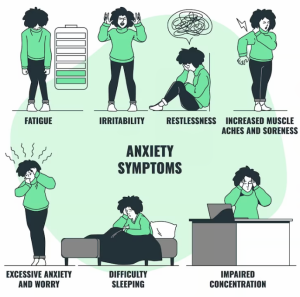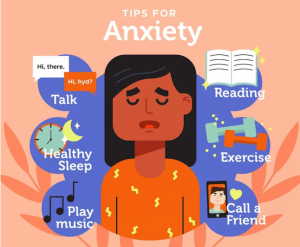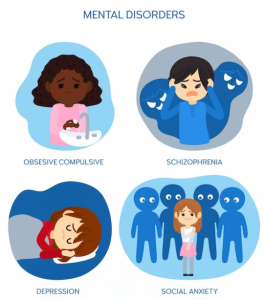1. Introduction
Obsessive-Compulsive Disorder (OCD) is a mental health condition that affects millions of people worldwide. It is characterized by intrusive and distressing thoughts, images, or impulses (obsessions) and repetitive behaviors or mental acts (compulsions) performed to alleviate the anxiety caused by these obsessions. OCD can significantly impact a person’s daily life, making it essential to understand this condition better and explore effective ways to manage it.
2. Understanding Obsessive-Compulsive Disorder
2.1 Definition and Overview
Obsessive-Compulsive Disorder is a chronic psychiatric disorder that can manifest in various forms. The obsessions are intrusive, unwanted thoughts, fears, or doubts that create significant distress. The compulsions are repetitive behaviors or mental rituals performed to reduce anxiety or prevent perceived harm.
2.2 Prevalence and Statistics
OCD affects people of all ages, genders, and cultural backgrounds. According to the World Health Organization (WHO), OCD is one of the top 20 causes of disability worldwide. Prevalence rates vary, but it is estimated that approximately 2% of the global population may experience OCD at some point in their lives.
2.3 Causes of OCD
The exact cause of OCD remains unknown, but it is believed to result from a combination of genetic, environmental, and neurobiological factors. Imbalances in certain neurotransmitters, such as serotonin, are thought to play a role in the development of OCD.
3. Symptoms of Obsessive-Compulsive Disorder
3.1 Common Obsessions and Compulsions
Obsessions can take many forms, such as fear of contamination, unwanted aggressive thoughts, or a need for symmetry. Compulsions often involve repetitive actions, like washing, checking, counting, or arranging objects.
3.2 Impact on Daily Life
OCD can significantly interfere with daily activities, relationships, and overall quality of life. The time-consuming nature of compulsions may lead to difficulties at work, school, or in personal relationships.
4. Diagnosis and Treatment of OCD
4.1 Diagnostic Criteria
To be diagnosed with OCD, a person must experience obsessions and compulsions that are time-consuming, distressing, and interfere with daily functioning. A qualified mental health professional can conduct a thorough assessment and provide an accurate diagnosis.
4.2 Therapy and Medication
Cognitive-Behavioral Therapy (CBT) is the first-line treatment for OCD. It involves exposure and response prevention to help individuals confront their fears and reduce compulsive behaviors. In some cases, medication, such as selective serotonin reuptake inhibitors (SSRIs), may be prescribed to complement therapy.
5. Living with OCD
5.1 Coping Strategies
Living with OCD can be challenging, but there are effective coping strategies that individuals can adopt. Mindfulness techniques, self-care practices, and stress management can all contribute to better managing the symptoms of OCD.
5.2 Support Systems
Building a support system is crucial for individuals with OCD. Friends, family, support groups, and mental health professionals can provide understanding, encouragement, and guidance throughout the recovery journey.
6. Breaking the Stigma
6.1 Dispelling Misconceptions
There are many misconceptions surrounding OCD. It is essential to educate the public and challenge stereotypes to create a more empathetic and supportive environment for those with OCD.
6.2 Promoting Understanding
Promoting awareness and understanding of OCD can help reduce stigma and encourage early intervention, leading to better outcomes for individuals living with the condition.
7. OCD in Children and Adolescents
7.1 Identifying Early Signs
OCD can affect children and adolescents, often presenting differently from adults. Parents, caregivers, and teachers should be aware of early signs to facilitate timely intervention.
7.2 Providing Age-Appropriate Support
Addressing OCD in young individuals requires age-appropriate approaches. Early intervention, therapy, and family involvement can significantly impact a child’s long-term well-being.
8. OCD and Other Mental Health Disorders
8.1 Co-Occurring Conditions
OCD commonly co-occurs with other mental health disorders, such as anxiety, depression, and eating disorders. Treating these conditions concurrently is vital for comprehensive recovery.
8.2 Dual Diagnosis and Integrated Treatment
Dual diagnosis programs that address both OCD and co-occurring disorders simultaneously can improve treatment outcomes and long-term management.
9. Research and Advancements
9.1 Current Studies and Findings
Research in the field of OCD continues to advance, leading to a deeper understanding of the condition and more effective treatment options.
9.2 Innovative Treatments
Cutting-edge therapies, such as deep brain stimulation and virtual reality exposure, are showing promising results in treating severe and treatment-resistant OCD cases.
10. Conclusion
Obsessive-Compulsive Disorder is a challenging but manageable condition that affects individuals worldwide. Through increased awareness, early intervention, and ongoing research, we can provide better support and understanding for those living with OCD.
11. FAQs
- Is OCD a rare disorder?No, OCD is not rare. It affects millions of people globally, making it a relatively common mental health condition.
- Can OCD be cured completely?While there is no cure for OCD, with appropriate treatment and support, individuals can learn to manage their symptoms effectively and lead fulfilling lives.
- Is OCD only about cleanliness and orderliness?No, OCD can manifest in various ways. While cleanliness and orderliness are common obsessions, other forms, such as intrusive thoughts and fears, are equally prevalent.
- Can childhood trauma cause OCD?Childhood trauma may be a contributing factor to the development of OCD in some cases, but the condition is multi-faceted and often influenced by various factors.
- Can individuals with OCD work and have successful careers?Yes, individuals with OCD can have successful careers with appropriate treatment, support, and accommodations in the workplace.



